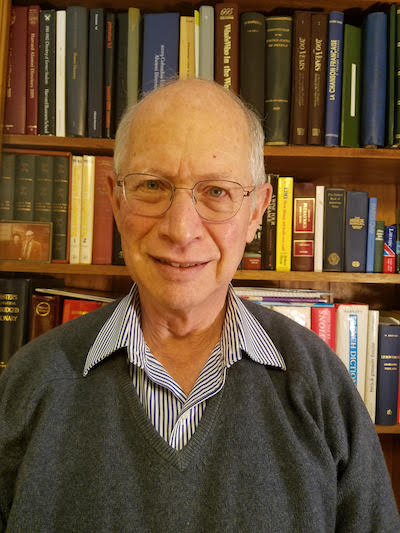Will Our Votes Be Counted in November?
- Monday, 27 July 2020 13:34
- Last Updated: Tuesday, 28 July 2020 07:31
- Published: Monday, 27 July 2020 13:34
- Joanne Wallenstein
- Hits: 3490
 The risk is 'hiding in plain sight,' based on the US Constitution 12th Amendment, which has received very little attention since its last invocation in 1824. It provides a blueprint for how Trump might be re-elected even if he has fewer electoral votes and fewer popular votes than Biden. If there are not 270 electors chosen by January 6, 2021, the House of Representatives elects the President with 26 votes, with each state having only one vote. The current House has 26 states with Republican majorities.
The risk is 'hiding in plain sight,' based on the US Constitution 12th Amendment, which has received very little attention since its last invocation in 1824. It provides a blueprint for how Trump might be re-elected even if he has fewer electoral votes and fewer popular votes than Biden. If there are not 270 electors chosen by January 6, 2021, the House of Representatives elects the President with 26 votes, with each state having only one vote. The current House has 26 states with Republican majorities.
Scarsdale resident Michael Otten is a former President of the Scarsdale School Board, and a co-founder of a non-partisan group of business and law school alumni called "Reform Elections Now." This association was formed two years ago with the objective to explore political innovations that could improve our democracy and make government work. The group runs a monthly education Zoom on election issues and they will discuss the problem described above at 5:00 pm, Tuesday 28 July, with free registration at A Constitutional Crisis Could be Coming: Why it could take until 2022 to resolve the 2020 election. You are invited to participate. Click here to register.
According to Otten, New York’s experience with absentee ballots has taught us that the state is not well positioned for the November 3rd election. Few of us realize the significant danger of a scenario playing out for this election that could invalidate our votes for Congressional and Presidential candidates. If there are delays, due to legal or administrative challenges to the November votes, which call in question the final count, we are likely to be in a position where we cannot declare a Presidential outcome by December 8, which, according to the National Conference of State Legislators, is the “Deadline for Resolving Election Disputes, [by which time] All state recounts and court contests over presidential election results must be completed...”* With a president warning of electoral fraud, and NY having very little experience with Vote-by-Mail, we might easily miss that date.
The impact occurs when a new Congress takes office on January 6, when the President of the Senate, Michael Pence, tabulates the Electoral votes. If no candidate has the requisite 270 electoral votes, the US Constitution 12th Amendment dictates that the President is elected by the House of Representatives with one vote per state. There are currently 26 states with Republican majorities. If New York, and other states, like Pennsylvania, have not yet finalized their votes by then, the election might no longer be based on popular or electoral vote.
There are things we can do to avoid this for Westchester, NY State and other jurisdictions that are not prepared for the onslaught of absentee ballots:
1. We should work now to improve the local Registration Rolls to reduce related challenges.
2. We should enlarge the Early Voting period to two weeks, as is already the case for some states. This might require the NY Legislature being called back into session.
3. We should process ballots as soon as they are received, resolving administrative or interpretation issues in advance of counting votes.
4. Although we might want to start counting the ballots when received, there are concerns that this can result in double counting if an individual votes in person after having submitted an absentee ballot. I hope you can find a way to resolve this potential issue by law or administrative directive, e.g., by not allowing a vote if a valid ballot has already been processed.
5. We should put in place a process to resolve any challenges in the allowed five weeks from November 3 to December 8. We cannot afford several months delay in results, as has already been experienced in multiple previous Congressional elections. (Senator Al Franken was finally seated in June 2009.)
 The bottom line is that if we do not take action now, there is a reasonable chance that our voters’ votes will not count at all and the election of the President will be made by a probably partisan vote of 26 to 24 in the House of Representatives.
The bottom line is that if we do not take action now, there is a reasonable chance that our voters’ votes will not count at all and the election of the President will be made by a probably partisan vote of 26 to 24 in the House of Representatives.
Register here to join the online conversation:
Dr. Otten is a former President of the Scarsdale School Board, a retired international business executive with IBM, a part-time graduate school professor, as well as co-founder of a non-partisan group of business and law school alumni called "Reform Elections Now." This association formed two years ago with the objective to explore political innovations that could improve our democracy and make government work, and runs a monthly education Zoom on such subjects as Gerrymandering, Ranked Choice Voting, Opening Primaries and Voting-by-Mail.







